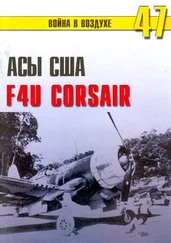The distinguished guests broke into spontaneous applause.
FIFTEEN

A MILE FROM WHERE St Gerassimus floated on an indigo blue sea, the first slopes of the Barbary mountains rose behind the close-packed buildings of a small Moorish town where a river drained from a cleft in the mountains. In front of the town a dozen or so feluccas and caiques lay at anchor in the roadstead, their decks deserted. The foreshore too was empty except for the rowing boats abandoned by the sailors who had fled their vessels the moment that St Gerassimus had appeared over the horizon. The arrival of the galley had taken them by surprise. In the past the town’s walls had proved stout enough to resist all but a prolonged attack, and the place was too insignificant to reward a major assault by any enemy. So the attention of a first-class war galley caused some puzzlement among the citizens though there was no great concern as they watched the newcomer hover quietly in front of the town, her oars occasionally moving as she maintained her station. The more observant of the townsfolk did, however, note something a little unusual about their visitor. The galley was not floating level. She was down by the bow.
On board St Gerassimus , premier comite Piecourt too was anxious – but for other reasons. The morning after the Festival of Galleys the Chevalier had summoned Piecourt and the sous comites to tell them that the galley was to put to sea within the week. During the banquet Commissaire Batiste had informed the Chevalier that the galley was to proceed to the Barbary coast, there to test the newest artillery weapon in the Corps Arsenal. The order came from Minister Colbert himself, and was to be obeyed with all despatch. Details of the armament were kept secret, and it was not until Piecourt saw the monstrous device floated out to his galley on a pontoon that he feared the result. The weapon was grotesque: a short, black cannon that reminded him of a gargantuan beer pot sitting on a heavy wooden sledge. What this monstrosity weighed he had no idea, but it had required a triple tackle to hoist the gun on to his galley’s foredeck, the rambade. As the monster was lowered into position he distinctly felt the galley tilt forward. He had removed the ship’s other guns, and shifted ballast further aft. He had also ordered the galley’s main anchor, normally kept in the bows, to be stowed below deck nearer the stern. Yet even when this was done, St Gerassimus still felt unwieldy, and the squat black mass on her foredeck appeared to him like an ugly wart.
But worse was to come. On the morning St Gerassimus left Marseilles harbour, she hove to outside the pier head so that the Arsenal’s gunpowder barge could come alongside to offload the test ammunition for the cannon – a hundred hollow cast iron globes filled with explosive and half as many kegs of a fine-grade gunpowder as propellant. The gunpowder was stowed in the galley’s magazine but the bombs, as the technician who accompanied the shipment called the heavy spherical projectiles, had to be kept separate. Some were already primed and fused and coated in sticky tar. Apparently they were to be sprinkled with gunpowder immediately before they were inserted into the gun’s gaping mouth. In theory the gun then shot the bomb high in the air, the tar-and-gunpowder coating ignited and, as the bomb blazed through the sky, the weapon lit its own fuse. When the device dropped into the target, it cleared any defences and smashed through any obstacle before exploding with massive damage. What happened if the fuse caught fire too soon and the bomb burst prematurely inside the cannon did not bear thinking about. St Gerassimus ’s mission was to test the reliability of the weapon.
‘Do you think the gun will work with the new bombs?’ Hector had asked Dan as they sat in the warm sunshine, chained to their oar bench and waiting for orders as the galley drifted on the glassy calm.
‘I don’t know,’ answered the Miskito. ‘I heard about it when I was in the armoury in the Arsenal, but never saw it for myself. The gun was kept in the artillery park.’
‘Yet the technician recognised you when he came aboard.’
‘He visited the gunsmiths a couple of times while I was working with them, to ask if we could improve one of the new designs of fuse. It’s a plunger which is screwed into the bomb casing. When the bomb lands on target, the plunger is meant to drive inwards, striking sparks from a flint and igniting the powder inside the bomb, just like a musket. He didn’t know much about boats as far as I could tell. He’s more a technical man.’
‘You would have thought they would have picked someone with better sea legs. He was seasick all the way here from Marseilles,’ said Hector. He looked over his shoulder for at least the twentieth time, to gaze at the coast of Africa.
‘Apparently a galley makes an ideal platform for his mortar – that’s his name for the launching gun – because the weapon is so heavy and awkward to move about on land,’ Dan continued. ‘But a ship can take the gun wherever it is wanted, and a galley can aim the mortar accurately by manoeuvring so that the gun is exactly at the right range and angle to throw its bombs on target—’
His explanation was cut short by Piecourt’s voice. ‘You there! Get up on the rambade! The gunner wants you.’ The premier comite was on the coursier, pointing at Dan. ‘Secure your oar, and take your companions with you.’ He bent down to unlock the padlock to the bench chain and allow the men to slip clear, but when Karp and the vogue avant Irgun made as if to move, Piecourt raised his whip threateningly. ‘Stay where you are!’ he ordered.
Dan led Hector and Bourdon on to the wooden platform of the rambade. The technician was fussing over the mortar. It sat on its massive sled, pegged and chained to the deck. Nearby a large tray held several bombs, a tub of fuse cord, and a number of fuses to be tested. At a safe distance, lashed against the rail, were some small kegs of gunpowder.
‘The first job is to check the bombs and their contents,’ said the technician, a small worried-looking man with badly bitten fingernails. It seemed he was also to act as gunner. ‘Any of you know about gunpowder?’
Bourdon gave a sardonic laugh. ‘Only how to make this mark,’ he said, pointing at the letters GAL branded on his cheek. ‘That’s how they make the brand permanent. They rub in gunpowder as soon as the hot iron is lifted.’
‘I’ve worked in a quarry,’ Hector interjected. ‘I’ll show him.’
‘Good. The gunpowder must be kept separate at all times. Even empty barrels can contain fine particles which may explode,’ warned the gunner, then turned towards Dan. ‘I need you to make sure that the correct charge is loaded into the mortar’s chamber, and that the firing fuse is properly inserted in the bomb, and in working order. You’ll find all the tools you need in that canvas bag over there.’
As Dan prepared the mortar, Hector and Bourdon checked over the bombs. They removed each bomb’s wooden plug, mixed and poured in more gunpowder through a funnel, made sure the powder settled evenly in the hollow sphere, and finally tamped home the plug again. It reminded Hector of the days when he was setting blasting powder into the rocks of the Algiers quarry. Careful to observe the gunner’s safety instructions they returned the empty barrels to their place against the rail. The sailors and the galley’s gun crew normally stationed on the rambade had made themselves scarce. Even Piecourt was standing far enough away to avoid the worst effects of an accident.
‘I’m ready to try a ranging shot,’ called out the technician. ‘Line up the vessel, if you please. The bow must point straight at the target.’
Читать дальше









